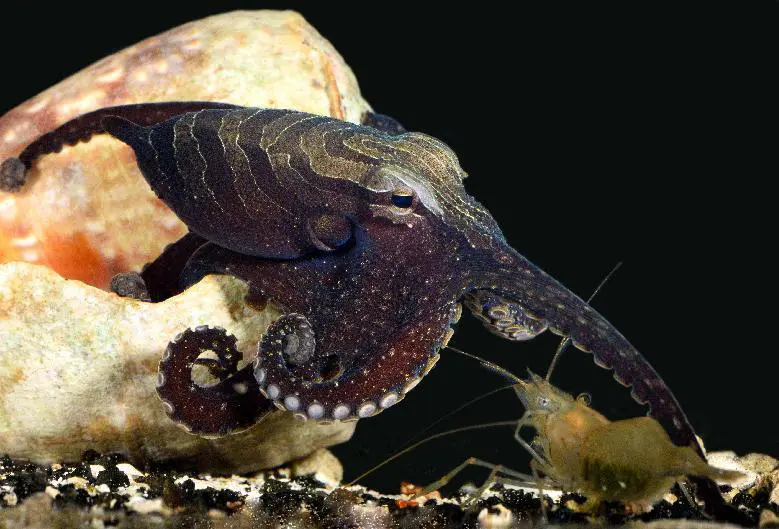Marine biologists were surprised by the behavior of the Pacific striped octopus. The researchers found that before they attack the prey, they pat it on the shoulder and only then inflict the fatal blow. In addition, unlike most of their brethren, male striped octopuses live with females for a long time, and the process of their mating is accompanied by an analogue of human kisses.
According to the EurekAlert portal, referring to the scientific journal PLoS ONE, biologists have found that, unlike other species of octopus, which sharply attack prey, squeezing it with all eight tentacles, the large Pacific octopus seems to warn the victim of an attack. Before delivering the killing blow, he pats her on the shoulder.
“I’ve never seen anything like it,” said integrative biology professor Roy Caldwell of the University of California, Berkeley. – Octopuses tend to pounce on their prey. When this octopus sees a shrimp in the distance, it shrinks and crawls up, lifts a tentacle and touches the shrimp, then catches it.
But what surprised scientists the most was the sexual behavior of Pacific octopuses. It is known that most octopuses are solitary, even mating occurs at a distance. Indeed, after mating, the female attacks the male and kills him. To preserve life, the male holds the female in place with one tentacle, and injects sperm into her mantle cavity with the other specialized organ.
Striped octopuses live together during courtship for several days. During this period, they share food with each other, and also touch with their beaks and suckers on their tentacles, which resembles kisses in humans. And only then they mate.
In addition, after sexual intercourse, the female and the male live together for several months, while the female lays eggs for six months, and after the appearance of the cubs she is next to them for several more months. Females of other octopuses die almost immediately after the appearance of offspring.







